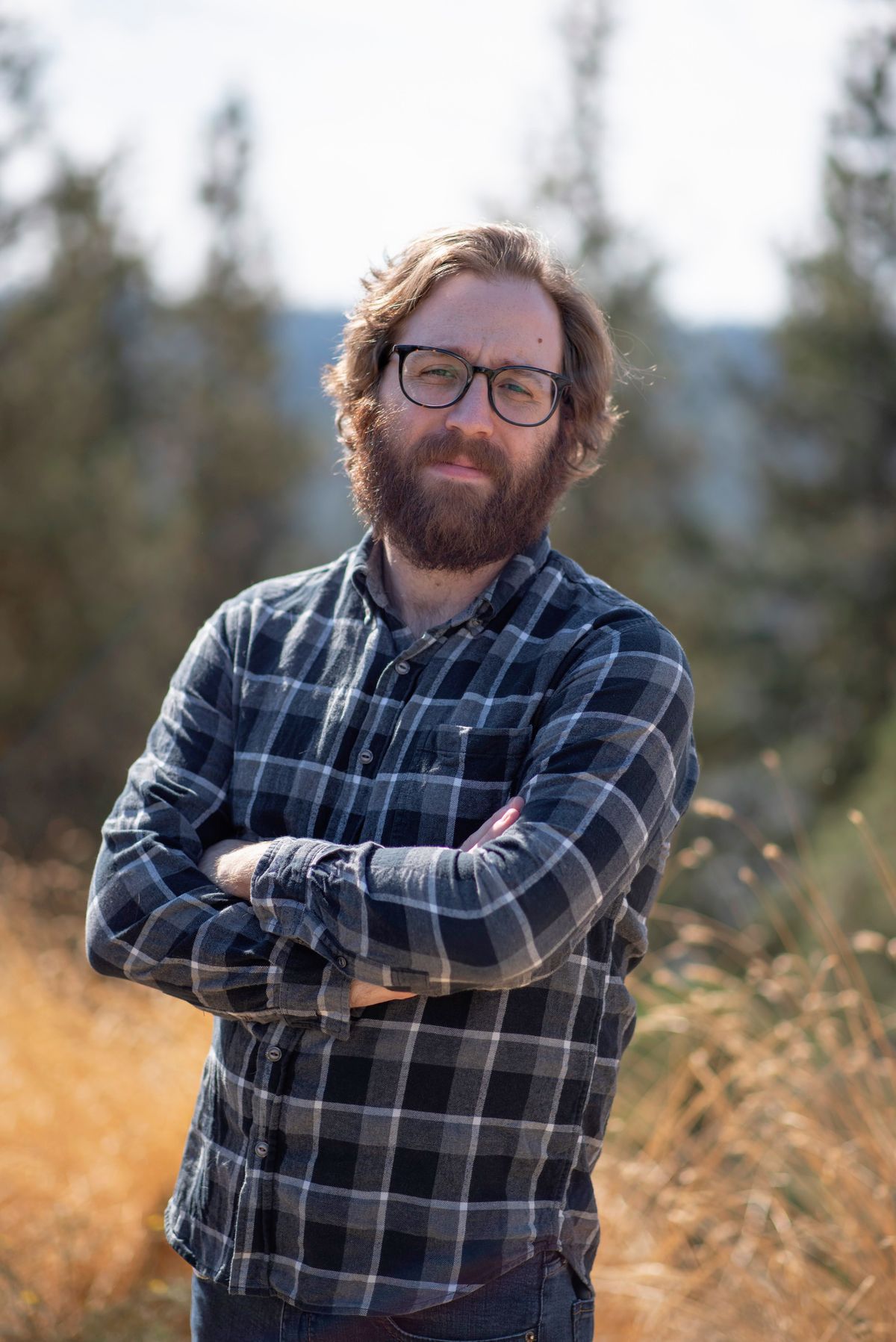Joseph Edwin Haeger’s ‘Bardo’ tackles violence, vengeance; book release set for Wednesday

The death of a child is every parent’s worst nightmare. But losing a child to violence adds an element of rage to the soul-shattering grief.
Joseph Edwin Haeger’s newest novella, “Bardo” (Thirty West Publishing House, 2023) tackles the topics of violence and vengeance in 82 sparse pages.
Like his novella-length memoir “Learn to Swim,” the prose in “Bardo” is unencumbered by paragraphs and for the most part, avoids the use of proper names. But in this outing, Haeger’s chapter numbering takes readers on unexpected twists and turns.
“I wrote it sequentially, printed it up, and then I stood on my trunk and looked down at it and began to shuffle the pages,” Haeger said. “Some people read it front-to-back and then re-read it sequentially.”
“Bardo” begins with chapter 18, as a father watches the execution of the man convicted of killing his son. But, instead of bringing closure, the event offers new torment. What if the executed man was truly innocent and the real killer is still out there?
“I wanted to write a gritty, revenge crime novel,” Haeger explained.
So, six years ago, he sat down to write and a week later, he finished it. The planned novel turned out to be as Haeger said, “Either a really long short story or a novella.”
The title reflects the state the father and the imprisoned man seemingly share.
“Bardo is the Buddhist version of Purgatory,” Haeger said. “It’s that place between living and dying.”
Told in alternating viewpoints between the father’s quest for vengeance and the prisoner’s back story, Haeger said he wanted to address the questions of who is innocent and who decides that.
“People grow up into who they’re expected to be,” he said.
In prison, the convicted man reflects on the harsh lessons he learned in childhood.
No one cared to hear my side of the story, and the more I tried to tell them, the harder the punishment was going to be.
The father, in turn, struggles with doubts about how he raised his troubled son.
There was a moment when we had to choose between giving in to him or implementing an even stricter rule. We chose the latter, and I don’t think I’ll ever stop wondering whether it was the right decision.
“The jumbled chapters mimic the headspace of grief,” Haeger said. “We are in the throes of it with this dad. His world feels a little muddy and mixed up.”
Haeger understands grief and the rage that often accompanies it.
“I felt that anger when my friend died as a result of a climbing accident,” he recalled. “He spent 10 months in the hospital. What are you supposed to do with that heavy layer of grief that overwhelms you, and you don’t have anything or anyone to blame? It’s human nature to want an eye for an eye.”
Next year, his first full-length novel, “Strings” is slated for publication. Written before “Bardo,” it tackles the topic of parental fears and anxieties.
For now, Haeger hopes readers will embrace the uniqueness of “Bardo” and experience an emotional connection to the story.
“I hope that it will build a little empathy and understanding,” he said. “Everyone experiences grief differently.”
Contact Cindy Hval at dchval@juno.com.